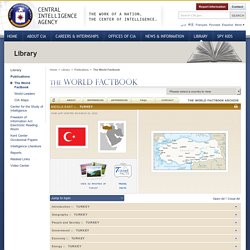

Accession of Turkey to the European Union. Turkey's application to accede to the European Economic Community, a predecessor of the European Union (EU), was made on 14 April 1987.

Turkey has been an associate member since 1963.[2] After the ten founding members, Turkey was one of the first countries to become a member of the Council of Europe in 1949, and was also a founding member of the Organisation for Economic Co-operation and Development (OECD) in 1961[3] and the Organization for Security and Co-operation in Europe (OSCE) in 1973. The country has also been an associate member of the Western European Union since 1992, and is a part of the "Western Europe" branch of the Western European and Others Group (WEOG) at the United Nations. Turkey signed a Customs Union agreement with the EU in 1995 and was officially recognised as a candidate for full membership on 12 December 1999, at the Helsinki summit of the European Council. History[edit] Background[edit] 1960s–1990s[edit] 2000s[edit] Positive Agenda[edit] Future[edit] Timeline[edit]
Egemen Bagis: 'Europe needs Turkey' - Talk to Al Jazeera. There is a change going on in the European political landscape. Although their agendas vary from country to country, political parties appealing to some form of traditional or nationalistic values have recently garnered significant footholds in the parliaments of Finland, Norway, Holland, Hungary, Sweden and Italy. There is often one common concern that unites these parties: Can Turkey, a predominantly Muslim country, join the European Union? Turkey is at the doorstep of Europe and it wants to come in. Despite growing anti-Muslim sentiments and a deepening economic downturn in Europe, Turkey is still negotiating to become a full member of the European Union. On this episode of Talk to Al Jazeera, we ask Egemen Bagis, Turkey's minister for European affairs and its chief EU negotiator, if Turkey is still as interested in joining the EU as it previously was or whether its perspective has changed.
Fifty Years On, Turkey Still Pines to Become European. Is Turkey appeasing the EU? - Inside Story. The Turkish government led by Recep Tayyip Erdogan, the prime minister, has decided to return properties confiscated from religious minorities 75 years ago. According to a decree issued this week, property taken away from minority religious foundations under a 1936 declaration will be returned to them. The Turkish government says it will pay compensation for properties that were seized and later sold. Minority foundations will have 12 months to apply to Turkish authorities to reclaim their property. The European Commission quickly welcomed the decree, but said in a statement that it will monitor closely the implementation of this new legislation.
The return of such properties has been a key demand of the European Union, which Turkey is seeking to join, and many observers believe that the decision will help ease Turkey's much strained relations with Europe. The World Factbook. Location: This entry identifies the country's regional location, neighboring countries, and adjacent bodies of water.

Southeastern Europe and Southwestern Asia (that portion of Turkey west of the Bosporus is geographically part of Europe), bordering the Black Sea, between Bulgaria and Georgia, and bordering the Aegean Sea and the Mediterranean Sea, between Greece and Syria Geographic coordinates: This entry includes rounded latitude and longitude figures for the centroid or center point of a country expressed in degrees and minutes; it is based on the locations provided in the Geographic Names Server (GNS), maintained by the National Geospatial-Intelligence Agency on behalf of the US Board on Geographic Names.
Map references: This entry includes the name of the Factbook reference map on which a country may be found. Note that boundary representations on these maps are not necessarily authoritative. This is the population pyramid for Turkey.